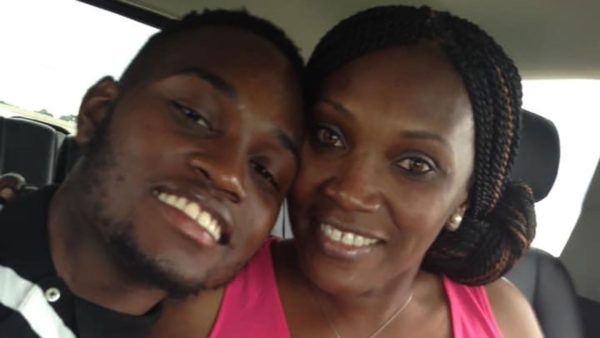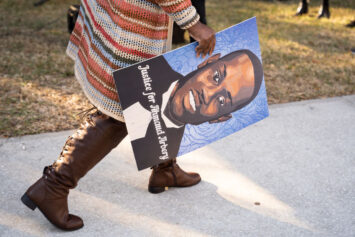Attorneys for the white father-and-son duo convicted of killing Ahmaud Arbery as he was jogging in a Georgia neighborhood have asked a federal court to overturn hate crime charges against them on technicalities.

Gregory and Travis McMichael’s acquittal motions, filed on March 8, argued that Arbery, a Black man, was on a private street when they chased and cornered him. Federal hate crime law applies to public spaces.
The elder McMichael’s attorney, however, also argues that he did not target the 25-year-old because of his race.
“The Government also failed to supply the jury with any evidence that Defendant Gregory McMichael associated African Americans with criminality,” his defense attorney said. “In fact, during a career in law enforcement spanning over two decades, the Government provided absolutely no evidence that Defendant Gregory McMichael displayed racist attitudes in the presence of coworkers, subordinates, and supervisors.”
The McMichaels and a third man, William “Roddie” Bryan, were found guilty of federal hate crime charges just one day shy of the second anniversary of Arbery’s death.
Arbery was running down the street in their Satilla Shores community in Brunswick, Georgia, on Feb. 23, 2020, when the father and son followed him. They had suspected him of burglarizing a nearby house under construction.
Evidence shows Arbery was on the property but never stole anything. Still, the McMichaels and Bryan reportedly chased Arbery in their pickup trucks and trapped him in the subdivision before confronting him. Travis, the younger McMichael, shot Arbery in a scuffle over the convicted murderer’s gun. Bryan caught the incident on video.
A state jury convicted the three men for the fatal incident for a total of nine murder and assault charges on November 24, 2021.
The defense attorneys now argue that the roads where the men followed Arbery are not considered a public space, so federal law should not apply.
Federal law prohibits the “willful injury” of a “person because of race” in public spaces.
Under Georgia law, a private road includes roads on private land, or a privately owned road or way, including any bridge, “which is only open for the benefit of one or more individuals and not for the general public.”
According to 11Alive, the Satilla Shores subdivision is next to two waterways with five streets lined by several homes. The local TV station reported Arbery was killed between Burford Road and Satilla Drive.
Defense attorneys argued that even though the county listed the roads as public streets on work orders, county officials formally rejected ownership of them sixty years ago.
Despite testimony that the elder McMichaels referred to a former Black tenant as a “Black ass” and once said he wished all Black people were dead, his attorney A.J. Balbo said federal prosecutors did not prove that he was racist toward Arbery.
Balbo argued that his client never referred to Arbery as the “n-word” despite seeing him on video surveillance numerous times.
Arbery’s family believes the men killed him because of his skin color. The Rev. James Woodall, state president of the Georgia NAACP, has referred to the killing as a “modern-day lynching.”
